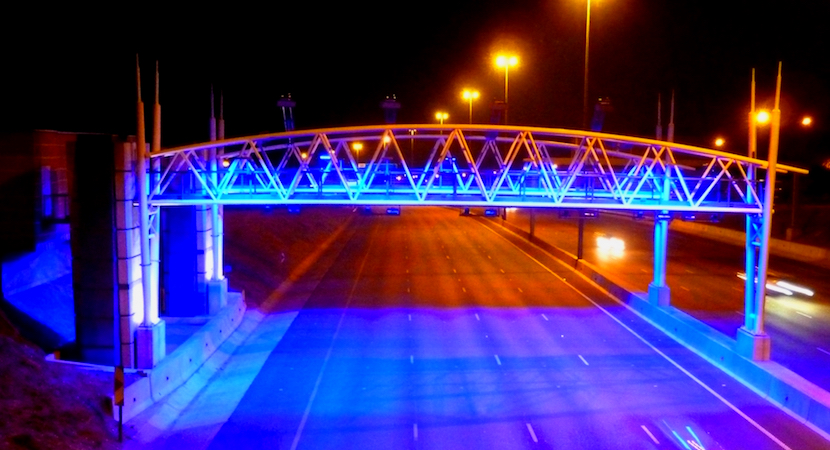The e-toll system is set to be scrapped early this year Photo BizNews.com
Gauteng – The e-toll system which was supposed to be scrapped on 31 December has been delayed into the new year by the Gauteng government. This comes as the provincial government and National Treasury have not yet decided how to support the deactivation of e-tolls.
Although there is a delay in the scrapping of the e-toll system, Wayne Duvenage, OUTA, reassured residents the decision on it is final. There are just some formalities which need to be finalised.
“The decision has been made. The scheme is going to be scrapped but there are some formalities which we can’t understand why they haven’t taken place over the last two months since the decision was announced at the end of October. We sit in the new year and they still have to fix up some of the agreements in the MOU between province and national. I guess that has to do with how much is due by the province and how much time will they be given to pay off this debt. The final step is the gazette.”
The delay in scrapping the e-toll system is yet another indication of the government’s “ineptitude, incompetence and indecisiveness”, said Duvenage.
Delays in scrapping the e-toll system is hurting businesses
Many have defied the e-toll system over the years and there will be no consequences for them. However, businesses have suffered under this system, explained Duvenage and the delays will continue to hurt them as they seek to remain compliant with the laws of the country.
“It leaves a bit of a problem with the few people who are paying like businesses. Most of the few businesses that are paying are doing so because they want to remain compliant … Many of these big businesses have been told if they want to do business with government, they have to pay their e-tolls. Now for them, they are uncompetitive. They have to pass these costs onto their customers, set up their systems to do so and they probably planned for 31 December and now it’s a problem because they have to extend it. That’s probably where most of the problems sit.”
Duvenage estimates that only about 10% of residents actually pay for e-tolls. The rest aren’t worried about when e-tolls will actually be scrapped. Those who are currently paying will not get refunded, said Duvenage.
SMread: Gauteng Health MEC calls for charges against Bara pipe thieves
Using the fuel levy to fix our nation’s roads
The e-toll system was introduced as a way to fund the upgrade of the Gauteng freeways. It cost the government R17.9bn and they looked to recover this money by making the 186 km freeway a toll road, a declaration that still remains in place today. These upgrades and repairs to national and provincial roads should be paid for by using the fuel levy, said Duvenage.
“The fuel levy is just one of the taxes we pay. It’s the fourth largest tax behind VAT, PAYE and company taxes. All we can say is government has the money to fix the country. If you look at the revenue that national government and local government has got, it has increased well above the inflation rates. There was a time 15, 20 years ago were municipalities and national government could cover the costs of road infrastructure and other infrastructure maintenance. The problem here is maintenance. The problem with our government is they have a very short term thinking. Maintenance is something you have to do for the long term.”
Duvenage pointed out maintenance continued to decrease on the budget while salaries for ministers continue to increase. Consultants are also paid to do the work ministers are required to do.
As it stands, the e-toll system is set to be scrapped. Before it can be, a notice to switch off the e-tolls has to be gazetted. It would then take 14 days after the release of the gazette for it to be deactivated.
